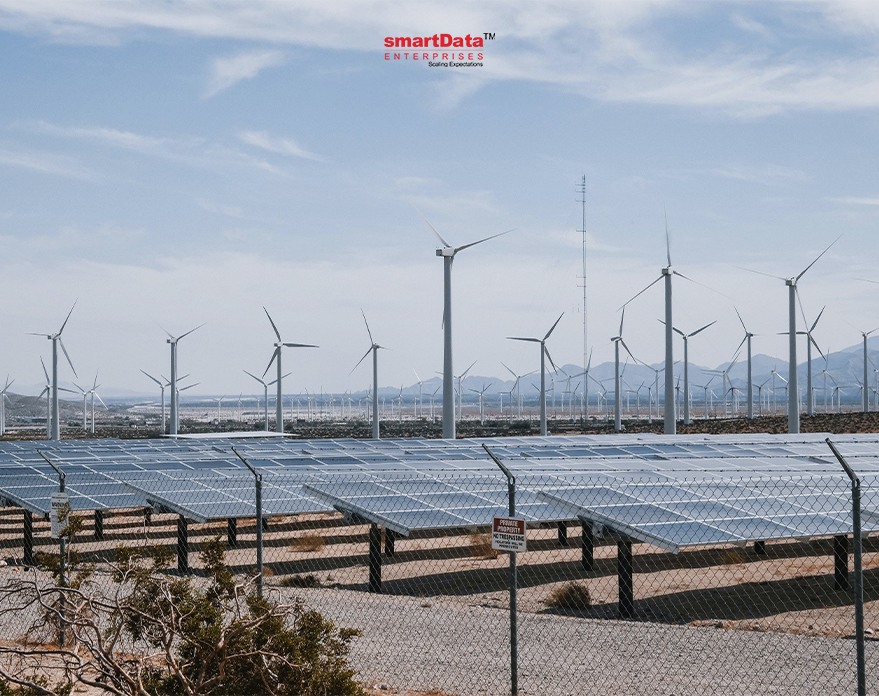ESG Trends in 2023: How Sustainability is Evolving and Changing the Landscape
Industries are shifting significantly towards a more digitized, decarbonized, and resource-efficient industrial future. It is a big challenge for all the stakeholders to implement and execute a new approach to make the environment greener and cleaner.
As we move into 2023, there is no denying that the global focus on sustainability has reached an all-time high. Climate change, environmental degradation, and social inequality have become pressing concerns.
Businesses are recognizing the importance of sustainability in achieving long-term success, and investors are increasingly looking for opportunities to support companies that prioritize ESG factors. For some, it's business as usual but for others, it's been a year of change and disruption.
This write-up will help you explore the new ESG trends that came in the field to make a strong step towards a sustainable environment. Let’s go through it.
Top ESR Trends in 2023
Several key trends in cleantech innovation symbolize significant progress towards the industrial revolution. Let's explore them.
- Renewable Energy Expansion
The adoption of renewable energy sources like solar, wind, and hydropower is set to accelerate. Moreover, startups and entrepreneurs are driving sustainable innovations using renewable energy to optimize large-scale operations.
- Energy Storage Breakthroughs
The energy storage technologies, such as advanced batteries, will witness significant advancements. These innovations will enhance the reliability and efficiency of renewable energy systems and enable smoother grid integration.
- Electrification of Transportation
The electrification of transportation, particularly in the automotive sector, will continue to gain momentum. The increasing availability of EV models improved charging infrastructure, and longer battery ranges will contribute to the mainstream adoption of electric vehicles.
- Decentralized Energy Systems
The shift towards decentralized energy systems will continue, with a focus on microgrids and smart grids. These systems will enable local generation, storage, and distribution of energy, enhancing resilience, reducing transmission losses, and supporting the integration of intermittent renewable energy sources.
- Circular Economy Solutions
The new professor in the field i.e. circular economy is gaining traction as a way to reduce waste and promote sustainability. Rather than the traditional linear model of take-make-use-dispose, the circular economy aims to keep resources in use for as long as possible and minimize waste by recycling and repurposing materials.
- Waste Management
Proper waste management lowers the bad impact on the environment. Nowadays, with technological innovation, there are a lot of cleanTech software development companies introduced the latest methods i.e either disposing of garbage or recycling it into useful material to enhance the product life cycle. A lot of other methods were also invented like greywater recycling, rainwater harvesting and many more.
- Smart Cities and Buildings
The integration of smart technologies in cities and buildings will continue to advance. Smart sensors, data analytics, and automation will optimize energy consumption, improve efficiency, and enable more sustainable urban environments.
- Green Hydrogen Production
Green hydrogen, produced through renewable energy-powered electrolysis, will gain traction as an energy carrier and storage solution. Innovations in electrolyzer technologies and decreasing renewable energy costs will support the scaling of green hydrogen production.
- Carbon Capture and Storage (CCS)
Carbon capture, utilization, and storage technologies will play a crucial role in achieving carbon neutrality goals. Advancements in CCS techniques, such as direct air capture and carbon utilization for building materials or fuel production, will become more prevalent.
- AI and Data Analytics
The integration of artificial intelligence (AI) and data analytics will enhance the efficiency and performance of cleantech systems. AI algorithms can optimize energy management, predict maintenance needs, and enable data-driven decision-making for various cleantech applications.
Achieve the goal of cleanTech solutions With our smartData team
As a top software development company, We are committed to protecting the environment and conserving natural resources through our CleanTech solutions, which are focused on reducing carbon emissions, waste, and enhancing efficiency.
Our goal is to achieve environmental, sustainability, and green objectives. From renewable energy sources such as solar and wind power to energy-efficient buildings and transportation, smartData leading the way in creating new opportunities for businesses and communities.
For less energy consumption, our customized solutions provide EV & smart home users with easy and convenient ways to lower their climate impact and automatically consume electricity when it's climate-friendly and the cheapest.
We also designed an application for calculating an individual carbon footprint based on surveys regarding daily habits and lifestyle choices. Other than that, Our team deliver solutions that track waste streams, optimize collection routes, and provide analytics for waste reduction strategies.
Overall, sustainability is evolving and changing various landscapes which leads to a more conscious approach to environmental stewardship, social responsibility, and economic development. As the universe come along with a lot of innovations with time, CleanTech is revolutionizing various sectors and paving the way for a cleaner, greener, and more prosperous world. Let us embrace the transformative power of CleanTech trends and innovations. Together, we can build a world that is powered by clean energy, guided by efficient practices, and characterized by responsible consumption and production. Conclusion

